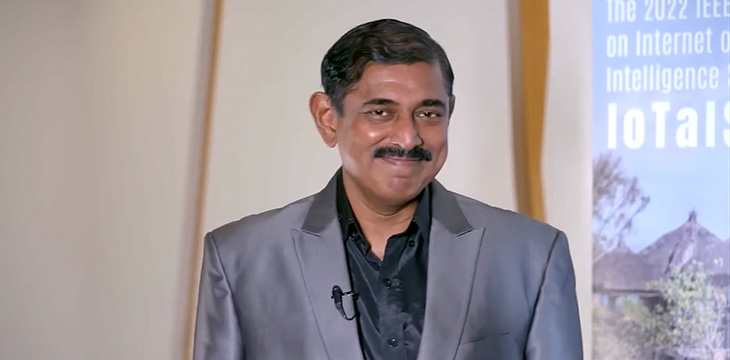|
Getting your Trinity Audio player ready...
|
Experts have enumerated common challenges to global blockchain and IPv6 adoption, which include the lack of understanding on the matter and crafting proper regulatory frameworks that would work with existing regulations.
While leaders continue to mull guidelines to regulate the emerging technologies industry, pioneers in the sector have launched a series of forums and workshops to help with educating enthusiasts, members of the public, as well as developers and engineers on the latest technologies in the market, which Sureswaran Ramadass said is a good starting point.
Speaking with CoinGeek Backstage, Ramadass, the chair of the IPv6 Forum Malaysia, said engineers—the primary individuals that will drive IPv6 adoption—are used to working with IPv4 and have little to no experience in handling IPv6, leading to the slow implementation of the technology.
“As an engineer, I feel very comfortable working with IPv4, and that is a temporary solution, but I feel more comfortable working with the devil I know than something new, which is IPv6 technology,” he said.
Ramadass noted that while industry leaders could develop newer technologies using IPv4, the world could miss out on greater things that only IPv6 could offer. This thought pushed him and experts in the field to kickstart an education program that would help engineers and developers familiarize the nascent technology, which he shared at the IEEE conference in Bali, Indonesia.
“Once engineers start getting to learn it, guess what? Implementation then around the world starts happening…as long as the engineers know it, they feel comfortable with it, they’re going to use it,” Ramadass said while pointing out that, unlike IPv4, IPv6 is cheaper and more secure due to its end-to-end connectivity.
When asked what roadblocks the IPv6 sector faces nowadays, Ramadass said there are none, as unlike in previous years, governments are open to collaborating with the industry to increase the adoption of the technology, citing their acknowledgment of the use cases it offers.
Currently, the industry is not focused on rallying engineers and developers to switch to IPv6 as they are more willing to get on with the transformation.
“Now, it’s just preparing them to move,” he said.
With regards to educating the public on blockchain technology, Ramadass said his team is cooperating with the Bitcoin SV (BSV) community to increase awareness.
IEEE as a steppingstone of IPv6, IoT adoption
Building on Ramadass’ statement, Prof. Muhammad Ary Murti of Telkom University, the organizer of the IEEE forum in Indonesia, said the event offers industry leaders a chance to showcase the power of IPv6 and other technologies as well, such as the Internet of Things (IoT).
Ary also acknowledged the support given by IPv6 Forum President Latif Ladid, who served as an advisor to the conference and helped onboard more than 35% of authors from outside Indonesia.
The IEEE conference served as a platform for stakeholders, industry leaders, and the academia to engage and share expertise and developments in the space while allowing them to brainstorm what needs to be done to promote IPv6 and IoT adoption or integrate the two to improve their capabilities.
The IEEE event was attended by three keynote speakers, one of them is Bitcoin inventor and Australian polymath Dr. Craig Wright, and the event received 96 papers from various countries focusing on IPv6 and IoT, which 200 reviewers will study.
Papers received by forum organizers will be published at the IEEE Xplore, the largest publisher website globally.
Watch: Latif Ladid’s keynote speech on IPv6-Based 5G/6g, IoT and Blockchain

 02-25-2026
02-25-2026 




